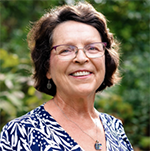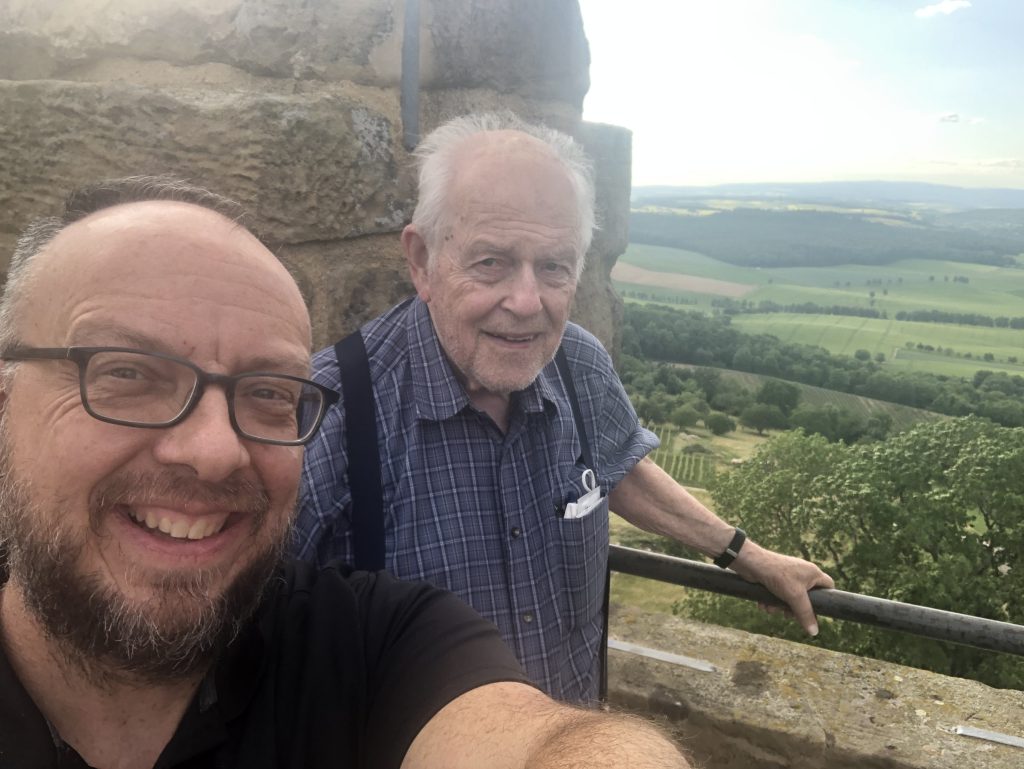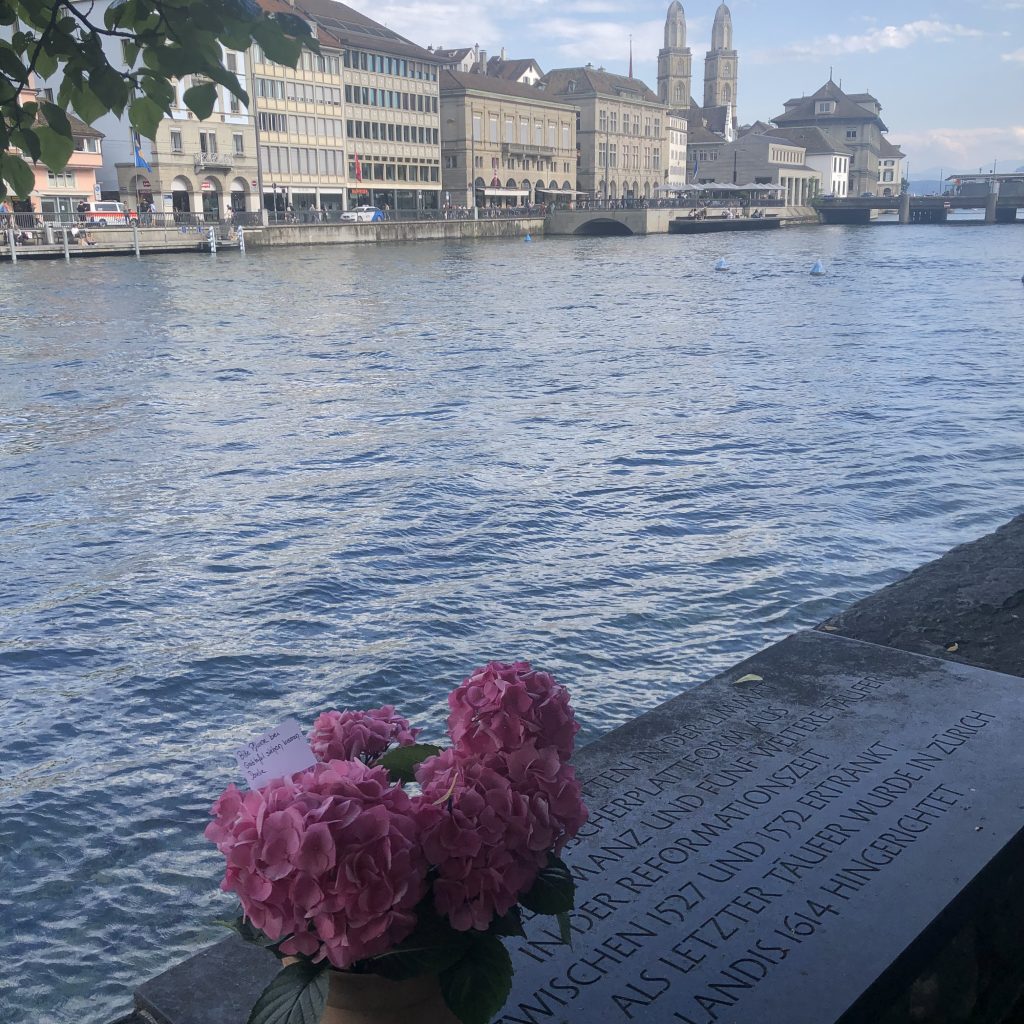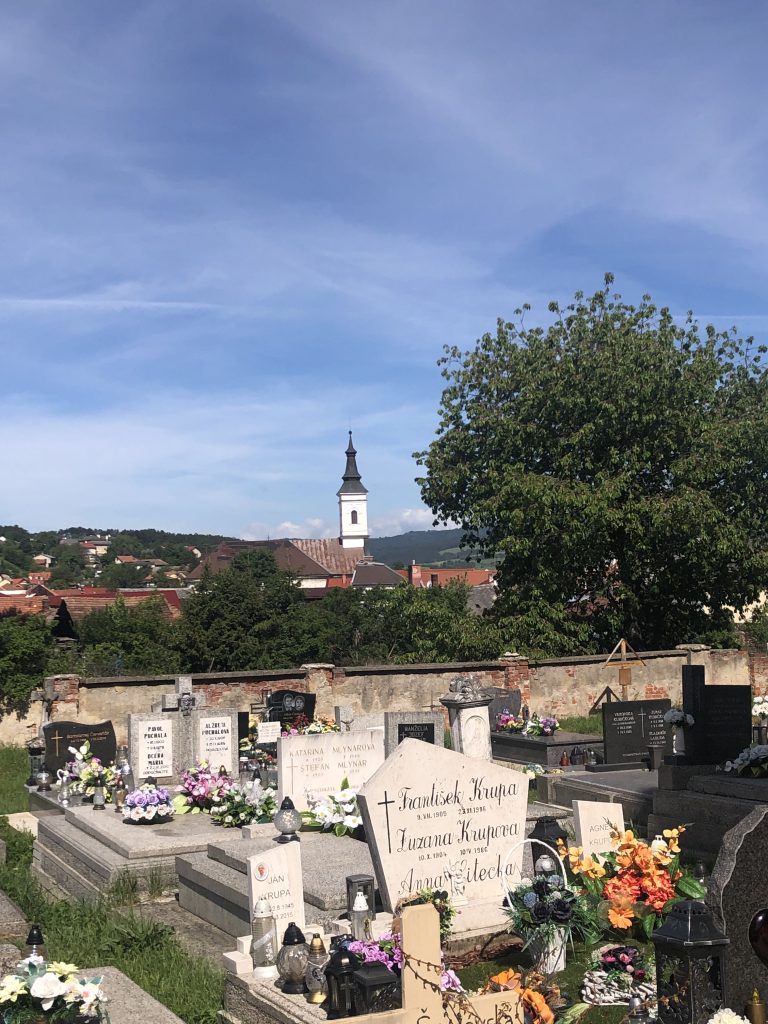As Mosaic Mennonite Conference commemorates the 500th Anniversary of Anabaptism in 2025, each month we will share a variety of Mosaic voices reflecting on the question, “What does Anabaptism mean to me?”
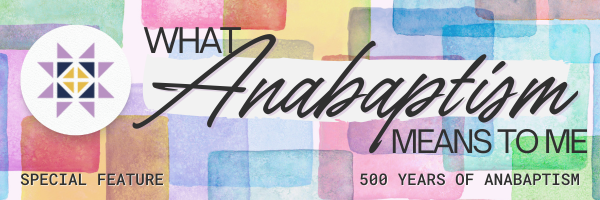

Submission from
Angela Moyer Walter, Mosaic Conference Moderator
On Commemorating Anabaptism at 500 this year:
I value the opportunity to celebrate the witness to a separation of church and state in order to bear witness to God’s upside down kingdom; the testimony to the power of nonviolent love; the commitment to service and simplicity; an emphasis on the life, teachings, death, and resurrection of Jesus; and building shalom in our relationships with God, others, self, and all of creation.
It is also an opportunity to acknowledge and lament the ways in which we have created conflict and violence through misuses of power via colonialism, racism, classism, and sexism and commit to the work of transparency, reconciliation, and restoration that the Spirit of Christ empowers us for.
Lastly, this year’s celebration creates an opportunity for us to pause and listen to and observe the Spirit’s leading. What unexpected places might she lead us? What surprises may be in store for us? I commit to following wherever the Spirit leads.

Submission from
Letty Cortes Castro, Centro de Alabanza de Filadelfia (PA)
(English Translation Below)
El anabuatismo para mí significa fortalecer la fe a través del testimonio de los reformadores del siglo xvi, quienes dieron su propia vida por defender su fe. El anabautismo es compartir con otros la importancia de ser puentes de paz y reconciliación en medio de la violencia; es vivir un estilo de vida basado en el ejemplo de Jesús, ayudando a los más vulnerables compartiéndoles el evangelio, llevándolos a reconocer que necesitan un Salvador, pero también enseñándoles a salir adelante en su vida personal (hay un proverbio chino que dice enséñale a pescar y comerá el resto de su vida).
El anabautismo es compartir en comunidad las escrituras, los valores y la ética moral donde hombres y mujeres deciden voluntariamente ser seguidores y discípulos de Jesús, mostrando su compromiso y obediencia, haciendo público su deseo de ser bautizados como adultos por decisión propia. Pertenecer a una comunidad cristiana anabautista es hacer una misión integral donde son atendidos todos los miembros desde el anciano hasta el más pequeño, cubriendo sus necesidades espirituales, físicas y emocionales, basados en las escrituras donde el enfoque es Cristo céntrico, el discipulado, el servicio, la alabanza y la preparación teológica.
English Translation:
Anabautismo (Anabaptism), for me, means strengthening faith through the testimony of the 16th-century reformers who gave their lives to defend their faith. Anabautismo is about sharing with others the importance of being bridges of peace and reconciliation in the midst of violence; it is about living a lifestyle based on Jesus’ example, helping the most vulnerable by sharing the gospel with them, leading them to recognize that they need a Savior, but also teaching them how to overcome challenges in their personal lives (there is a Chinese proverb that says, “Teach them to fish, and they will eat for the rest of their lives”).
Anabautismo is about sharing scriptures, values, and moral ethics in community, where men and women voluntarily choose to be followers and disciples of Jesus, demonstrating their commitment and obedience, publicly expressing their desire to be baptized as adults by their own decision. Belonging to an Anabaptist Christian community is engaging in integral mission, where all members, from the elderly to the youngest, are attended to, covering their spiritual, physical, and emotional needs, based on scriptures with a Christ-centered focus on discipleship, service, praise, and theological preparation.

Submission from
Jenny Fujita, Blooming Glen (PA) Mennonite
I’m finishing seminary and the last student left in my Anabaptist studies program. That sounds like bad news but it’s not. My classes are now so thoroughly Anabaptist that we no longer need a program named after what we’re learning. Students and professors consistently share examples of faith communities that revolve around Jesus and strive for reconciling peace. Today, Anabaptism is transdenominational. It is not ours alone.
For 500 years Anabaptists have been living out the risky love of God together with discipline, perseverance, joy, and sometimes pain. The rooster did not crow even once for the early Anabaptists.
Today, I am being formed by Anabaptists around me — extraordinary people who don’t even know how special they are. They humbly give kidneys to strangers, tell Pennsylvania Dutch tales about a simpler time, plant trees, raise money for deworming medicine for the world’s children, minister to veterans with moral injuries, host hymn sings as an act of worship, store hundreds of copy paper boxes in their garage for annual school kit assemblies, buy shoes in bulk to send to Honduras, visit lonely elders, deliver roasted chickens to the doorsteps of the sick and grieving, knit prayer shawls, bring farm surpluses to hungry families, and more.
I witness these acts of radical love every day, and the world is noticing, too. Onlookers are magnetized by the authentic ways Anabaptists follow Jesus’ example. What could be more attractive (and necessary) in today’s world?
Mosaic values two-way communication and encourages our constituents to respond with feedback, questions, or encouragement. To share your thoughts or send a message to the author(s), contact us at communication@mosaicmennonites.org.


